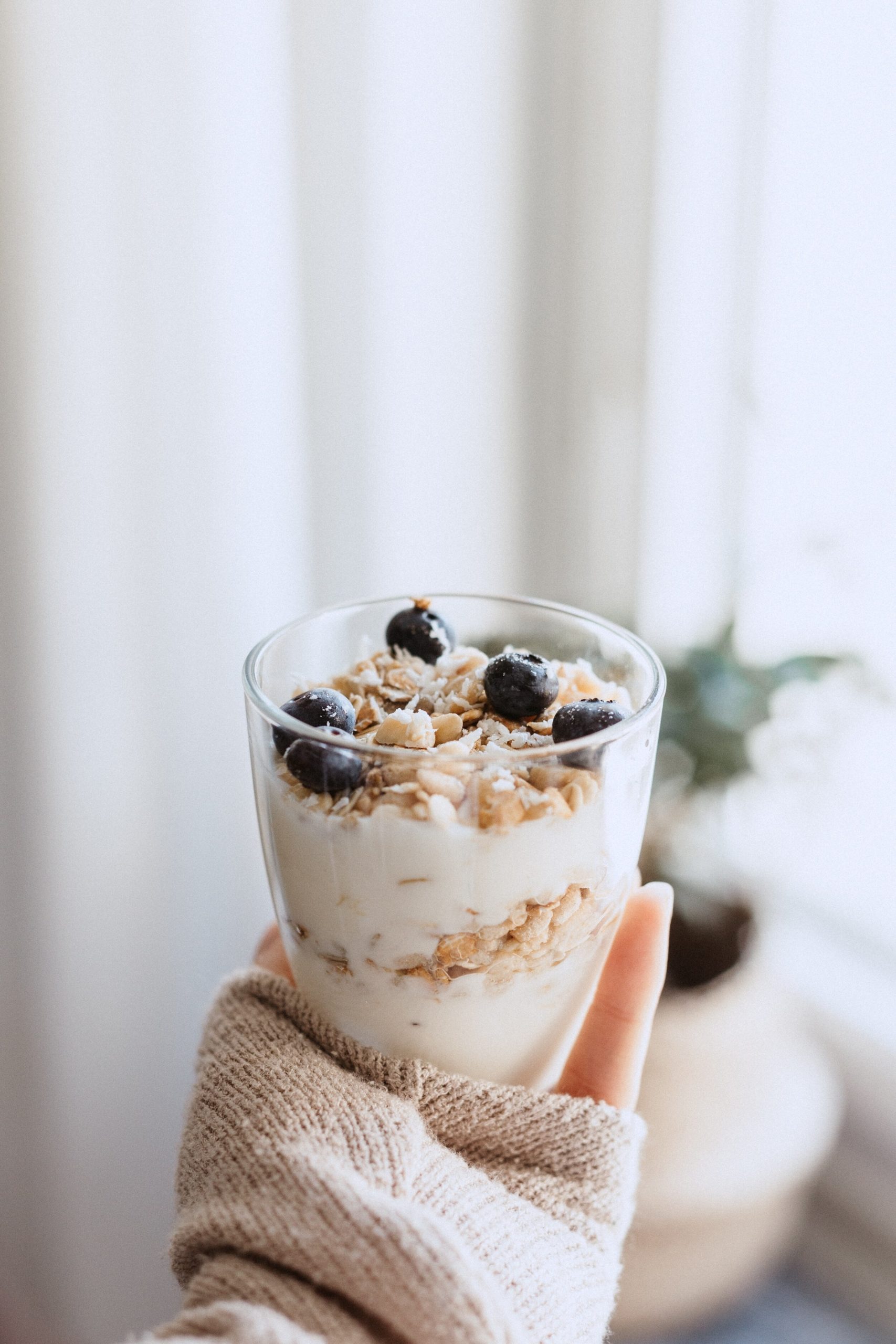explore favorite recipes
GRILLED VEGGIE CHOPPED SALAD WITH HONEY-LEMON VINAIGRETTE
OAT, CRANBERRY, & DARK CHOCOLATE PROTEIN BITES
Quick tips for optimal gut health
filed under:
Why is it important to have a healthy gut?
Health begins in the gut. Did you know that 80% of the immune system is in the gut? The health of our gut microbiome affects nearly every aspect of our health. In fact, over 40 diseases have been linked to a bacterial imbalance in the gastrointestinal tract. A healthy gut is key for optimal health, good digestion, and a strong immune system.
What do gut bacteria do? The bacteria in our guts have many important roles. They produce certain nutrients that our bodies need and they are able to regulate the metabolism of certain nutrients as well.
What’s more, our intestines are our first line of defense against invaders such as harmful bacteria. The gut bacteria maintain the health of our most delicate barrier – the gut. So, a healthy gut creates a strong barrier to protect the body against harmful bacteria or infections.
What happens with poor gut health?
When the ratio of good and bad bacteria is out of balance, known as dysbiosis, this means there’s an imbalance of too much of a certain type of fungus, yeast or bacteria that affects the body in a negative way.
Certain conditions that can be connected to poor gut health include Irritable bowel syndrome, Inflammatory bowel disease, diabetes, and autoimmune disorders, for example.
By consuming certain types of probiotic foods and supplements, you can help bring these ratios back into balance.
How do we create and nourish a healthy gut?
1. Focus on fiber
Consume fiber-rich foods including fruits and vegetables, whole grains, nuts, and seeds. In the large intestine, bacteria ferment these fibers, which in turn can decrease inflammation, help absorb nutrients, and generate certain nutrients such as biotin and vitamin K.
2. Eat probiotic-rich foods
Consume plenty of probiotic-rich foods to nourish a healthy gut. Add fermented dairy products like yogurt and kefir to your diet. Other foods rich in probiotics include kimchi, sauerkraut, kombucha, miso, and tempeh. Adding these types of foods will help populate the gut with healthy bacteria.
3. Eat prebiotic-rich foods
Prebiotics are certain fibers that feed the good bacteria in your gut. You need prebiotics to fuel the probiotics! Some prebiotic-rich foods include cruciferous vegetables like brussels sprouts, broccoli, cauliflower, and cabbage. Asparagus, artichokes, berries, and chicory family greens like endive, radicchio, escarole, and dandelion greens.
4. Eat the rainbow
Eating a wide variety of colored produce introduces a wider variety of microbes and beneficial bacteria to your digestive system. Additionally, eating fruits and vegetables of all colors ensures you are getting a wide variety of vitamins, minerals, and antioxidants. Don’t just stick to your go-to veggies – keep it exciting and vary your vegetables!
5. Include healthy fats
Consuming a diet rich in healthy fats is also important for optimal gut health. Incorporate plant sources of fats including olive oil, avocados, nuts, and seeds. Fatty fish is also a great source of healthy fats.
*Please note that these are general nutrition tips and gut health is not one-size-fits-all. While many of these tips can help everyone achieve optimal gut health it is important to work with a healthcare professional specializing in digestive health who can help you address your unique needs and identify your specific triggers and sensitivities, while being careful to avoid embarking on a restrictive diet.
HOMEMADE SHAKSHUKA WITH EGGPLANT & FETA
love this post? share it!

hi, i'm
ashley.
behind the blog
1:1 nutrition counseling →
let me cook for you →
let me write for you →
I'm a dietitian, cook, and writer in New York City with a mission to spread the joy of food and eating, and empower others to live healthier and more delicious lives. I'll post on the blog to share some of my favorite recipes as well as fun and approachable nutrition tips and tricks.
more about me